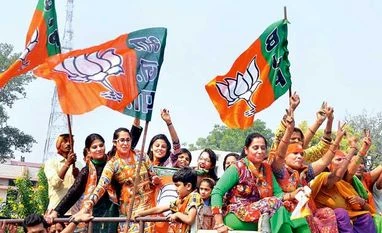As part of this strategy, senior party leaders have been asked to engage with mediapersons to underscore how the land Bill was "pro-farmer". Senior party leaders, however, refuse to accept that the "pro-corporate" and "anti-farmer" image was mostly self-inflicted.
A senior party leader blamed "some of the last surviving Leftists" in Delhi's media and academic institutions like the Jawaharlal Nehru University to be running a misinformation campaign against the government. "It's a perception war we have been fighting since 2002 (Gujarat riots)," the leader said. He said any "communication gap" the BJP had was with the media and not with people, with whom the party had a "direct connect".
The party is confident the land acquisition issue will not harm it in the Bihar Assembly election. Its central leadership has, however, muted their criticism of regional parties that helped in the passage of key reform Bills. Party leaders also dismissed reports that the Rashtriya Swayamsevak Sangh (RSS) is concerned about the "anti-farmer" image of the Modi government for its advocacy of the land Bill. They said voices of dissent were proof that the Sangh Parivar believes in internal democracy. The 44-page document stresses on the Modi government's proposed nine amendments to its land ordinance "to strengthen pro-farmer aspects of the land ordinance".
It lists the land ordinance and opening of over 12-crore bank accounts under the Pradhan Mantri Jan Dhan Yojana, as some of the achievements of the Modi government, along with the passage of coal and insurance Bills and 100 per cent foreign direct investments in the pharmaceutical sector.
The info-graphics quote various national and international surveys and studies to showcase all-round "better days" under Modi government - reviving stalled projects, checking food inflation, improving investor confidence, improvement in ease of doing business, growth in manufacturing and services sectors, India emerging as the fastest growing economy in the world, etc.
You’ve reached your limit of {{free_limit}} free articles this month.
Subscribe now for unlimited access.
Already subscribed? Log in
Subscribe to read the full story →

Smart Quarterly
₹900
3 Months
₹300/Month
Smart Essential
₹2,700
1 Year
₹225/Month
Super Saver
₹3,900
2 Years
₹162/Month
Renews automatically, cancel anytime
Here’s what’s included in our digital subscription plans
Access to Exclusive Premium Stories
Over 30 subscriber-only stories daily, handpicked by our editors


Complimentary Access to The New York Times
News, Games, Cooking, Audio, Wirecutter & The Athletic
Business Standard Epaper
Digital replica of our daily newspaper — with options to read, save, and share


Curated Newsletters
Insights on markets, finance, politics, tech, and more delivered to your inbox
Market Analysis & Investment Insights
In-depth market analysis & insights with access to The Smart Investor


Archives
Repository of articles and publications dating back to 1997
Ad-free Reading
Uninterrupted reading experience with no advertisements


Seamless Access Across All Devices
Access Business Standard across devices — mobile, tablet, or PC, via web or app



)
